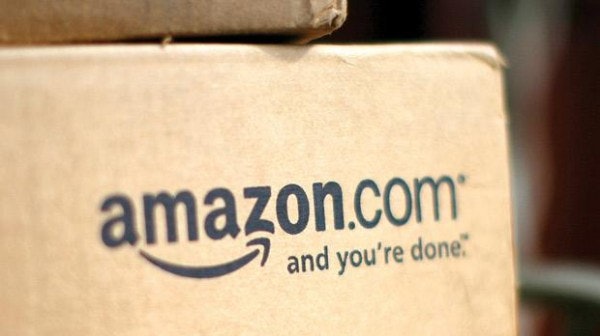Digital content reselling may seem like an oxymoron, but technology and legal developments may soon make the reselling of digital content of all types, audio, video and apps, easier than putting something on eBay Inc (NASDAQ:EBAY). Amazon.com, Inc. (NASDAQ:AMZN) and Apple, Inc. (NASDAQ:AAPL) have both filed patents for the digital swap meets of the future.

Creative license
Most of the digital content we download to our electronic devices cannot be legally sold or transferred to anyone else. Unlike a good old fashioned book or CD, users are pretty much stuck with the digital content they “own”, forever. Since digital content never degrades, digital content providers such as music, video and software producers insisted on this provision as a condition of digital distribution.
It may seem unfair not to be able to sell something you own, but in fact, most digital content downloaded from iTunes or Google (NASDAQ:GOOG) Play or Amazon.com, Inc. (NASDAQ:AMZN) is only licensed to you. The license is a form of contract that you entered into when you clicked that Download button, whether you read the fine print of the end user license agreement (EULA) or not.
Even for content that is not protected by some form of digital rights management (DRM), the typical EULA specifies that the purchaser of the license is entitled to use the content only for personal, non-commercial purposes. In most cases, the user is not authorized to sell or transfer the content, even if it’s feasible to do so, and in many cases it’s not feasible.
Although Apple instituted a DRM-free system for digital music in the U.S., Apple continues to use its Fairplay DRM system to prevent copying of TV and film content. Like apps, these can only be installed on a limited number of devices belonging to the licensed user. Amazon imposes similar restrictions on Kindle books. Even Google Inc. (NASDAQ:GOOG) enforces license verification for apps through Google Play, which prevents transfer of apps to unauthorized devices and may even prevent an authorized user from using an app on a device if it isn’t connected to the Internet.
Turning the system on its ear
In late January, Amazon received a patent for “An electronic marketplace for used digital objects” and on March 7 the US Patent Office published Apple’s patent application for “Techniques . . . for managing access to a digital content item . . . to be transferred from one user to another.”
What the patents of Amazon.com, Inc. (NASDAQ:AMZN) and Apple do is allow a licensed user to relinquish the license and content back to a distributor such as Apple and provide for various mechanisms where the content could be transferred to a new purchaser. In effect, digital marketplaces could be created for the used content which would bring buyers and sellers together. The key is that the content distributors maintain ultimate control over the licensed content and ensure that the process doesn’t devolve into unlimited copying and piracy. Only one user at a time would be allowed to “own” a particular licensed content.
Does is really make sense to resell digital content, since it never wears out or degrades? I’ve been struggling to come up with a plausible business case for this that content providers would agree to. It’s clear that content users would like to be able to trade or resell content that is no longer wanted, but there would need to be some form of discount involved with the transaction in order to attract prospective buyers away from “new” content.
It’s not clear why content creators would ever agree to discounted selling of “used” digital content without some form of a value reduction mechanism that would justify offering a discount. Perhaps one approach would be to offer a transferable limited use license. This would provide a built in mechanism for devaluing the content, while at the same time offering a reasonable value proposition for the consumer. For instance, you might buy a transferable license for a video good for 10 views only. The more the video is watched, the less valuable the license would become, but it could be sold in the open market at any time.


